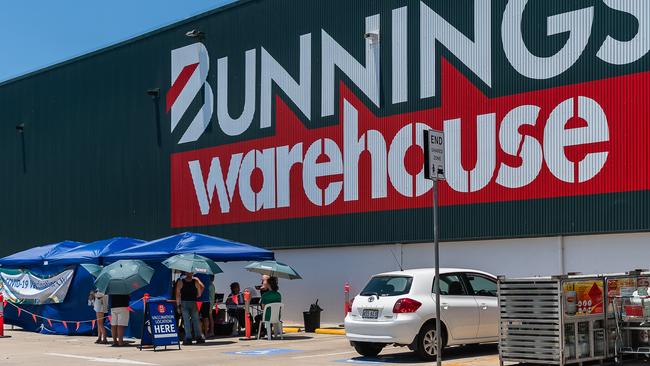Bunnings begins review of head office and support staff roles
The hardware giant will kickstart a round of redundancies at head office and support centres as it reshapes for post-pandemic trading.
Bunnings will kickstart a round of redundancies across its national support centre and head office that could ultimately affect as many as 300 positions in training, communications and other support services, as the business pivots for post-pandemic trading.
There will be some job losses through attrition and not filling vacant roles, sources said.
Bunnings has begun a review of its headcount, support centre operations and in particular an increasing shift to offering in-house training online with many roles to go and other redundancies to be offered in the coming weeks and months.
Internally Bunnings senior management have decided that now the hardware retailer is on the other side of the most disruptive part of the Covid-19 pandemic it is timely to review its support centre resourcing to ensure it is set up for the headwinds facing the Australian economy.
Bunnings employs around 53,000 people of which around 1600 work at the head office in Melbourne, while the head office and other support centres have key staff in training, communications and other human resources roles.

The hardware retailer has declined to comment on the actual size or number of redundancies but insiders say as many as 300 roles will be stripped out of the business in the next few months, although not all of those will be current staff who will lose their jobs. Bunnings will use currently empty roles which won’t be filled and attrition of current staff to get to its final headcount goal.
A review of Bunnings and its structure is occurring over the next few months and the retailer expects there will be some support office roles across its support centres around Australia that will no longer be required.
Bunnings hopes to minimise any impact on current team members through redeployments across the group and it expects the proportion of team leaving the business to be low.
Bunnings recently restructured its learning and development teams as it transitions out of the complex Covid-19 trading environment and further moves to digitise its training, HR and skills development programs.
The job losses come as Bunnings and other retailers prepare for growing challenges to the strength of the Australian economy - and spending power of consumers - from rising interest rates, cost of living pressure and stresses on household budgets.
Bunnings, owned by Perth-based conglomerate Wesfarmers, is one of the largest retailers in Australia with one of the largest pools of staff and its retail model captures a mix of discretionary and non-discretionary goods and services that might come under pressure from a pull back in spending in the new year.
Many economists and analysts fear a major retreat in consumer spending from January as households cope with the cumulative impact of rising interest rates since May as well as soaring inflation.





